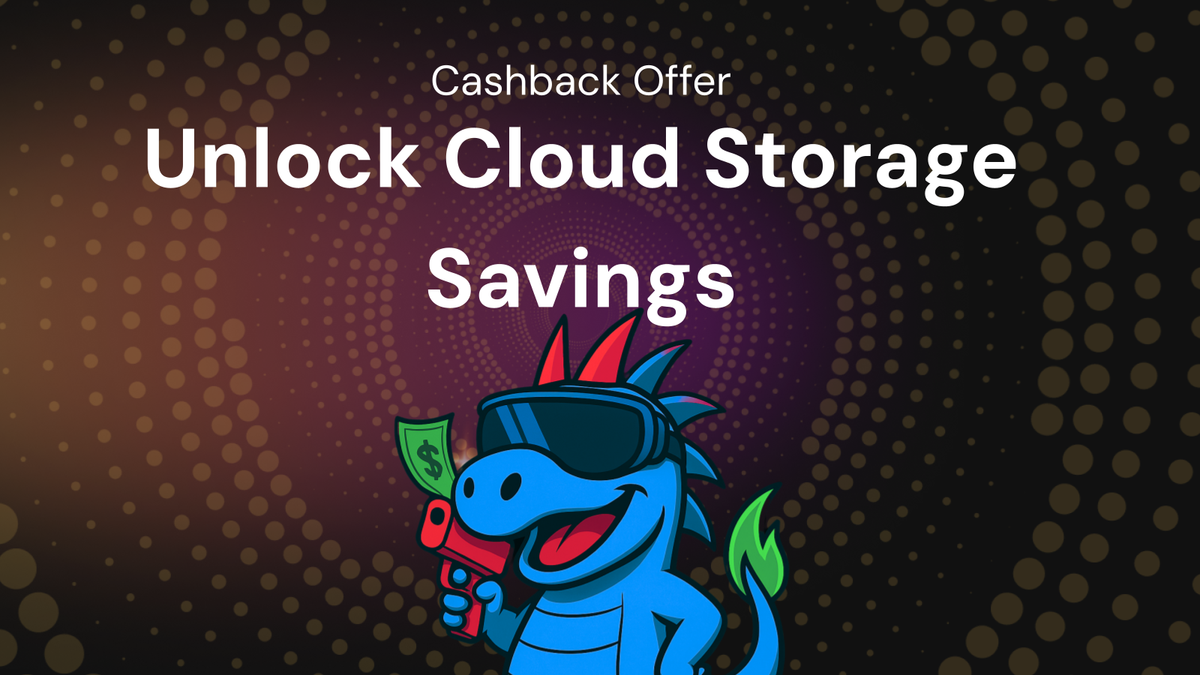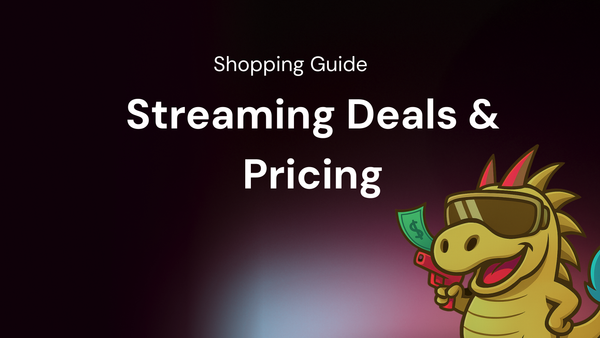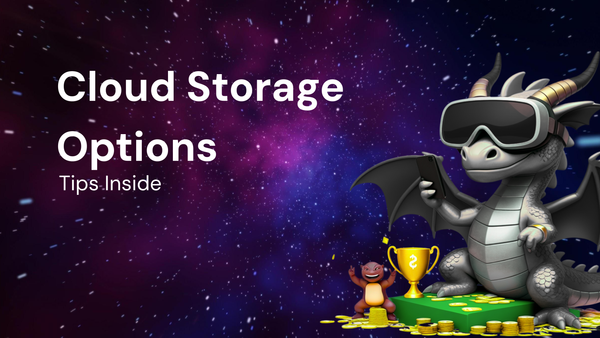Unlock Savings: Freemium Vs Premium on cloud storage with cashbacks

Unlock Savings: Freemium Vs Premium on Cloud Storage with Cashbacks
In today's digital age, cloud storage has become an indispensable tool for individuals and businesses alike. From safeguarding precious memories to facilitating seamless collaboration, the cloud offers a myriad of benefits. However, navigating the world of cloud storage can be daunting, especially when it comes to choosing between freemium and premium plans. This article aims to demystify these options and explore how you can unlock savings, particularly when combined with cashback opportunities.
1. The Rise of Cloud Storage: Why Everyone Needs It
Before diving into the freemium vs. premium debate, let's briefly examine why cloud storage has become so ubiquitous.
- Data Security: Cloud storage provides a secure and reliable backup solution, protecting your data from hardware failures, theft, and natural disasters.
- Accessibility: Access your files from anywhere in the world with an internet connection, making it ideal for remote work and on-the-go access.
- Collaboration: Share files and collaborate with others seamlessly, enhancing productivity and teamwork.
- Scalability: Easily scale your storage capacity as your needs grow, without the hassle of managing physical storage devices.
- Cost-Effectiveness: Often more affordable than traditional storage solutions, especially for businesses.
These advantages have propelled cloud storage into the mainstream, making it a necessity for individuals and organizations of all sizes.
2. Understanding Freemium Cloud Storage: The Allure of "Free"
The term "freemium" is a portmanteau of "free" and "premium," representing a business model where a basic service is offered free of charge, while more advanced features or storage capacity require a paid subscription. Freemium cloud storage plans are designed to attract users with the promise of free storage, allowing them to experience the benefits of cloud storage without immediate financial commitment.
2.1. Benefits of Freemium Cloud Storage:
- Zero Initial Cost: The most obvious advantage is the lack of upfront investment. You can start using the service immediately without paying anything.
- Risk-Free Trial: Freemium plans allow you to test the platform's interface, features, and overall usability before committing to a paid subscription.
- Basic Functionality: Most freemium plans offer essential features such as file storage, sharing, and syncing, which may be sufficient for basic needs.
- Ideal for Light Users: If you only need to store a small amount of data or occasionally share files, a freemium plan might be all you need.
2.2. Limitations of Freemium Cloud Storage:
While freemium plans offer compelling advantages, they also come with limitations that you should carefully consider.
- Limited Storage Space: This is the most common constraint. Freemium plans typically offer a small amount of storage (e.g., 2GB, 5GB, or 15GB), which may quickly become insufficient, especially for storing photos, videos, or large documents.
- Feature Restrictions: Some advanced features, such as advanced sharing permissions, version history, priority support, or offline access, may be restricted to premium subscribers.
- Bandwidth Limits: Freemium plans may impose limits on the amount of data you can upload or download each month, which can be problematic for frequent users or those dealing with large files.
- Advertisements: Some providers may display advertisements within the user interface to offset the cost of providing free storage.
- Privacy Concerns: It's crucial to carefully review the provider's privacy policy to understand how your data is used and protected, as free services may rely on data monetization strategies.
2.3. Examples of Popular Freemium Cloud Storage Providers:
- Google Drive: Offers 15GB of free storage shared across Google Drive, Gmail, and Google Photos.
- Microsoft OneDrive: Provides 5GB of free storage, integrated with Microsoft Office applications.
- Dropbox: Offers 2GB of free storage, with opportunities to earn more through referrals and completing onboarding tasks.
- pCloud: Provides up to 10GB of free storage through referrals and completing introductory steps.
2.4. When is Freemium Cloud Storage a Good Choice?
Freemium cloud storage is a suitable option in the following scenarios:
- Casual Users: If you only need to store a few documents, photos, or videos and don't require advanced features.
- Trying Out a Service: Before committing to a paid subscription, a freemium plan allows you to test the platform and determine if it meets your needs.
- Temporary Storage: For short-term projects or temporary file sharing.
- Budget Constraints: When you have limited financial resources and cannot afford a paid plan.
3. Exploring Premium Cloud Storage: Unlocking Advanced Features and More Space
Premium cloud storage plans offer enhanced features, larger storage capacities, and improved performance compared to their freemium counterparts. These plans are designed for users who require more storage space, advanced functionality, and reliable performance.
3.1. Benefits of Premium Cloud Storage:
- Ample Storage Space: Premium plans offer significantly more storage space, ranging from hundreds of gigabytes to terabytes, accommodating large files, extensive media libraries, and growing data needs.
- Advanced Features: Unlock advanced features such as:
- Version History: Track changes to your files and revert to previous versions if needed.
- Advanced Sharing Permissions: Control who can access your files and what they can do with them (e.g., view, edit, download).
- Offline Access: Access your files even without an internet connection.
- Priority Support: Receive faster and more comprehensive customer support.
- Enhanced Security: Benefit from advanced security features such as two-factor authentication, encryption, and data loss prevention (DLP).
- No Advertisements: Enjoy an ad-free experience, ensuring a cleaner and more focused user interface.
- Increased Bandwidth: Higher bandwidth limits allow for faster uploads and downloads, ideal for working with large files or collaborating with others.
- Business-Oriented Features: Some premium plans offer features specifically designed for businesses, such as team collaboration tools, user management, and compliance certifications.
3.2. Potential Drawbacks of Premium Cloud Storage:
- Cost: The most significant drawback is the cost, as premium plans require a monthly or annual subscription fee.
- Feature Overkill: If you don't need the advanced features offered by premium plans, you might be paying for functionality you won't use.
- Commitment: Subscribing to a premium plan often involves a long-term commitment, which might not be ideal if your storage needs are temporary.
3.3. Examples of Popular Premium Cloud Storage Providers and Their Pricing:
- Google Drive: Offers various premium plans starting at \$1.99/month for 100GB.
- Microsoft OneDrive: Offers plans starting at \$1.99/month for 100GB or included with Microsoft 365 subscriptions.
- Dropbox: Offers plans starting at \$11.99/month for 2TB.
- pCloud: Offers lifetime plans as well as monthly and annual subscriptions, starting at \$49.99/year for 500GB.
- iCloud+: Offers plans starting at \$0.99/month for 50GB.
3.4. When is Premium Cloud Storage a Good Choice?
Premium cloud storage is a worthwhile investment in the following situations:
- Large Storage Needs: When you need more storage space than what's offered in a freemium plan.
- Advanced Features Required: If you require advanced features such as version history, advanced sharing permissions, or offline access.
- Business Use: For businesses that need to collaborate on files, manage user access, and ensure data security.
- Professional Content Creators: Photographers, videographers, and other content creators who need to store and share large media files.
- Long-Term Storage: When you need a reliable and secure solution for long-term data storage.
4. Cashback Opportunities: Saving Money on Cloud Storage
Now that we've explored the differences between freemium and premium cloud storage, let's delve into how you can save money on cloud storage subscriptions through cashback programs.
4.1. What is Cashback?
Cashback is a type of reward program where you receive a percentage of your purchase back as cash or store credit. Cashback programs are offered by various retailers, credit card companies, and online platforms.
4.2. How to Find Cashback Offers for Cloud Storage:
- Cashback Websites: Websites like Rakuten (formerly Ebates), Swagbucks, and TopCashback partner with various online retailers and service providers, including cloud storage companies, to offer cashback rewards.
- How to use cashback websites:
- Sign up for a free account on a cashback website.
- Search for the cloud storage provider you're interested in.
- Click on the "Get Cashback" link to be redirected to the provider's website.
- Complete your purchase as usual.
- The cashback amount will be credited to your cashback account after the purchase is verified.
- How to use cashback websites:
- Credit Card Rewards: Some credit cards offer cashback rewards on all purchases, while others offer bonus cashback on specific categories, such as online services or software.
- How to use credit card rewards:
- Use a credit card that offers cashback rewards on online purchases.
- Pay for your cloud storage subscription with the eligible credit card.
- The cashback amount will be automatically credited to your credit card statement.
- How to use credit card rewards:
- Cloud Storage Provider Promotions: Some cloud storage providers occasionally offer cashback promotions directly to their customers. Keep an eye out for these promotions on their websites or through email newsletters.
- Browser Extensions: Install browser extensions from cashback websites to automatically detect and activate cashback offers while you browse online.
4.3. Tips for Maximizing Cashback Rewards:
- Compare Cashback Rates: Cashback rates can vary between different platforms and providers. Compare the rates before making a purchase to ensure you're getting the best deal.
- Combine Offers: Look for opportunities to combine cashback offers with other discounts or promotions, such as student discounts or annual subscription discounts.
- Read the Fine Print: Carefully review the terms and conditions of the cashback program to understand any restrictions or limitations.
- Track Your Rewards: Keep track of your cashback rewards and redeem them regularly to avoid losing them due to inactivity or expiration.
4.4. Examples of Cloud Storage Providers That May Offer Cashback (Check Current Availability):
- Dropbox
- pCloud
- Backblaze
- IDrive
5. Freemium vs. Premium with Cashback: A Practical Guide
Now, let's combine the knowledge of freemium and premium options with the power of cashback to make informed decisions.
5.1. Assessing Your Storage Needs:
Before choosing a plan, accurately assess your storage requirements. Consider the following:
- Types of Files: What types of files will you be storing (e.g., documents, photos, videos)?
- File Sizes: How large are your files?
- Growth Rate: How quickly will your storage needs grow over time?
- Usage Frequency: How often will you be accessing and sharing your files?
5.2. Determining Your Budget:
Establish a realistic budget for cloud storage. Consider both the upfront cost of the subscription and the potential cashback rewards.
5.3. Choosing the Right Plan:
- Freemium: If your storage needs are minimal and you don't require advanced features, a freemium plan might suffice. Look for providers that offer generous free storage or opportunities to earn more storage through referrals.
- Premium: If you need more storage space, advanced features, or business-oriented tools, a premium plan is a better choice. Prioritize providers that offer the features you need at a price that fits your budget. Don't forget to check for cashback opportunities!
5.4. Leveraging Cashback to Reduce Costs:
- Find Cashback Offers: Use cashback websites, credit card rewards, or provider promotions to find cashback offers on your chosen cloud storage plan.
- Calculate Net Cost: Calculate the net cost of the subscription after applying the cashback rewards to see how much you're actually paying.
- Consider Annual Subscriptions: Annual subscriptions often offer significant discounts compared to monthly subscriptions, and they may also qualify for higher cashback rates.
5.5. Example Scenario:
Let's say you need 200GB of cloud storage.
- Option 1: Google Drive (Premium): \$2.99/month for 200GB, or \$35.88/year.
- Cashback Opportunity: Rakuten offers 5% cashback on Google Drive subscriptions.
- Net Annual Cost: \$35.88 - (5% of \$35.88) = \$34.09
By utilizing cashback, you effectively reduce the cost of your premium cloud storage subscription.
6. Beyond Storage: Considering Other Factors
While storage capacity and cost are crucial factors, consider these aspects as well:
- Security: Ensure the provider employs robust security measures to protect your data, such as encryption, two-factor authentication, and data loss prevention (DLP).
- Privacy: Carefully review the provider's privacy policy to understand how your data is used and protected. Look for providers that are transparent about their data handling practices and comply with relevant privacy regulations (e.g., GDPR, CCPA).
- Ease of Use: Choose a provider with a user-friendly interface and intuitive features that make it easy to upload, download, and manage your files.
- Integration: Consider how well the cloud storage service integrates with your existing devices, operating systems, and applications.
- Customer Support: Look for providers that offer reliable and responsive customer support channels, such as email, phone, or live chat.
7. Conclusion: Unlock Savings with Informed Decisions
Choosing the right cloud storage plan is a personal decision that depends on your individual needs and budget. By understanding the differences between freemium and premium options, assessing your storage requirements, and leveraging cashback opportunities, you can unlock significant savings while ensuring your data is safe, accessible, and well-managed. Remember to prioritize security, privacy, and ease of use when making your final decision. With careful planning and a strategic approach, you can find the perfect cloud storage solution that meets your needs and budget.




